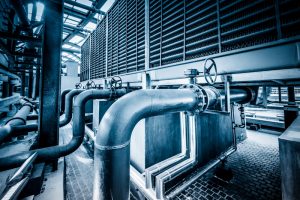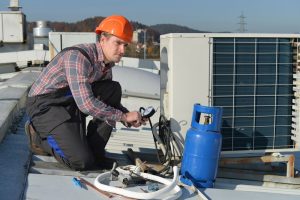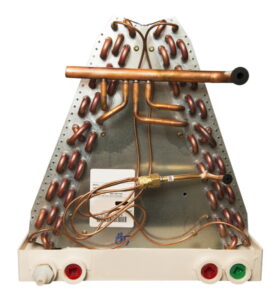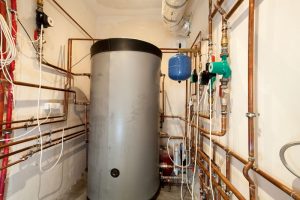Running a business is a huge undertaking. You have a lot of tasks to juggle, departments to oversee, and affairs to manage. Among all this work, it’s easy to let something like the HVAC system that heats and cools your facility slip from your mind. As long as it seems to be working, creating the desirable indoor environment for your business needs, then you likely won’t focus on it. Dupont Heating & Air Conditioning is a trusted partner and professional company with extensive experience in the commercial HVAC industry, dedicated to supporting your business with reliable climate control solutions.
However, lack of attention to your commercial heating and air conditioning can be costing you money. Possibly a lot of money. Commercial HVAC systems are often complex, requiring specialized knowledge for proper care. Proactive maintenance offers significant advantages, including energy savings, increased system longevity, and improved efficiency. We’re going to look at four common mistakes that people make in commercial facilities that can lead to HVAC system waste.
As a company with access to advanced technology and industry resources, Dupont Heating & Air Conditioning delivers efficient and reliable commercial HVAC maintenance services to help you avoid these costly mistakes.
Continue Reading
Tags: commercial air conditioning maintenance, Commercial Air Conditioning repair, commercial heating maintenance, Commercial Heating Repair, Toronto
Posted in Commercial Air Conditioning | Comments Off on 4 Common Mistakes That Waste Energy in a Commercial Facility





 You don’t want your commercial facility to suffer from any interruptions during the harsh Toronto winters because of a heating system failure. This applies to almost any type of commercial operation, from manufacturing to retail.
You don’t want your commercial facility to suffer from any interruptions during the harsh Toronto winters because of a heating system failure. This applies to almost any type of commercial operation, from manufacturing to retail.  Although people connect the word “refrigerant” to devices that produce cooling, such as air conditioners and refrigeration equipment, refrigerant is often an essential part of the heating and cooling systems for commercial spaces. The standard rooftop units that most facilities use for climate control use refrigerant to both move into and out of the space. Under normal circumstances, refrigerant-based equipment will use the same charge of refrigerant through its service life—refrigerant circulates in a closed loop and does not dissipate through the heat exchange process.
Although people connect the word “refrigerant” to devices that produce cooling, such as air conditioners and refrigeration equipment, refrigerant is often an essential part of the heating and cooling systems for commercial spaces. The standard rooftop units that most facilities use for climate control use refrigerant to both move into and out of the space. Under normal circumstances, refrigerant-based equipment will use the same charge of refrigerant through its service life—refrigerant circulates in a closed loop and does not dissipate through the heat exchange process. Your facility probably uses rooftop units as an important part of its cooling and heating around the year. These packaged heat pumps operate through the circulation of refrigerant, which is necessary in both heating and cooling mode.
Your facility probably uses rooftop units as an important part of its cooling and heating around the year. These packaged heat pumps operate through the circulation of refrigerant, which is necessary in both heating and cooling mode.  We keep extremely busy during the harsh, lengthy winters in Ontario handling repairs for the commercial heating systems of our customers. We help reduce the number of repairs our clients must deal with through our excellent maintenance program. But no amount of pre-season maintenance can stop every heating problem.
We keep extremely busy during the harsh, lengthy winters in Ontario handling repairs for the commercial heating systems of our customers. We help reduce the number of repairs our clients must deal with through our excellent maintenance program. But no amount of pre-season maintenance can stop every heating problem. This is a catch-all question that covers what we often hear from our new clients, especially during winter when the Toronto temperatures plunge. For facility managers in commercial buildings, day-to-day functions can become nightmarish when it costs a fortune to run heating equipment, people in the facility are complaining about discomfort, and process and equipment are having problems that seem connected to changes in the indoor climate.
This is a catch-all question that covers what we often hear from our new clients, especially during winter when the Toronto temperatures plunge. For facility managers in commercial buildings, day-to-day functions can become nightmarish when it costs a fortune to run heating equipment, people in the facility are complaining about discomfort, and process and equipment are having problems that seem connected to changes in the indoor climate. A commercial boiler can serve a range of functions inside a commercial facility, providing heating to spaces for comfort or for process and protection of other equipment. Boilers are often the best and most cost-effective alternative to standard forced-air heating systems.
A commercial boiler can serve a range of functions inside a commercial facility, providing heating to spaces for comfort or for process and protection of other equipment. Boilers are often the best and most cost-effective alternative to standard forced-air heating systems.